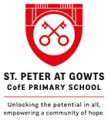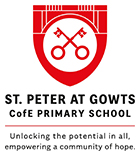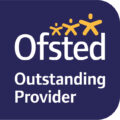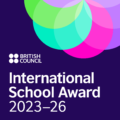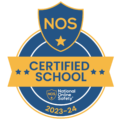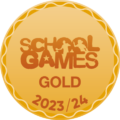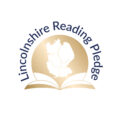Science
Science intent statement:
At St Peter at Gowts, our science curriculum is inspiring and creative, unlocking potential in all. Our curriculum seeks to ensure that all learners flourish through challenge, support within a broad and balanced curriculum rooted in shared values and consistently high expectations while striving for excellence.
St Peter’s science curriculum is fashioned through our golden threads of values, inspiration, excellence, and community.
At St Peter at Gowts, we understand that children are naturally curious, and we encourage this inquisitive nature through our ambitious science curriculum. We believe science encompasses the acquisition of knowledge, concepts, scientific skills and positive values. Through our cohesively planned science curriculum, children will acquire and develop their knowledge and skills along with having the opportunity to ask questions about scientific phenomenon. We ensure that the working scientifically skills are progressively developed so that all learners can use equipment, conduct experiments, build arguments, and articulate concepts confidently. In an ever-changing world, we aim to educate all learners about key issues that affect our environment and their local community. We aim to inspire all learners to become more eco conscious, driving the principles of sustainability. Through our science curriculum, we strive to achieve excellence and unlock potential in all.
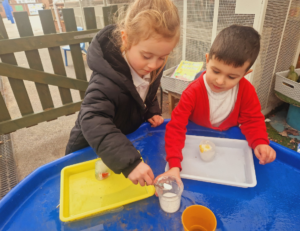
Our four key threads weave through everything we do at St Peter’s :
Values – Our science curriculum embraces the school and British values. We inspire the children to learn about how they can have a positive impact on their community by showing the values of wisdom, responsibility, creation and respect. The children build on prior knowledge and develop a deeper understanding of the world around them through the study of environmental sciences and the values of self-belief and responsibility encourage children to preserve with scientific enquires whilst seeking to be responsible in the choices they make.
Inspirational – Our inspiring science curriculum provides the children with many exciting opportunities for example, forest school, projects with Lincoln University, national and local manufactures, and the Lincolnshire Show. The children embrace eco awareness and promote sustainability throughout the school, constantly educating children and adults of all ages.
Community – Our science curriculum leads the children to think about the school community, local community and then the wider community and how they can use what they have learnt to positively impact the world around them.
Excellence – Our ambitious science curriculum constantly challenges all learners to think with scientific minds, using the skills of questioning and analysing information to enable them to form their own views and opinions. Scientific enquires encourage all learners to be methodical and diligent with their careful observations. At St Peter’s, we aim to raise the aspirations of the children as we show them the ways in which science plays a part in our daily lives, through industry and the environment.
Science implementation:
Our science curriculum is implemented by expert teachers who create a positive attitude to science learning and engage children within their classrooms, reinforcing an expectation that all learners can achieve high standards as scientists. Every lesson is personalised to meet the needs of all learners at St Peter’s. Personalisation includes the use of adaptive teaching, links to the community and our locality and purposeful cross curricular links, which are planned and timely to support and strengthen learning. Science in EYFS is underpinned by the Understanding of the World objectives as set out in our personalised EYFS Curriculum. Our St Peter’s EYFS Curriculum relates to the objectives as set out in the Early Learning Goals, with clear progression from our littlest of learners (aged 2) to our end of Reception children.
- Science units of study begin with a pre-assessment of current knowledge and skills, from which a learning sequence is constructed, meeting the National Curriculum requirements.
- Our planned curriculum is progressive in working scientifically skills and knowledge, with the discrete teaching of vocabulary at its heart, which is subsequently built upon through programmes of study and year groups in our spiral curriculum.
- We involve problem solving opportunities that allow children to find out for themselves. As a scientist, children are encouraged to ask their own questions and be given opportunities to use their scientific skills and research to discover the answers. As well as becoming more proficient in selecting and using scientific equipment, collating, and interpreting results, they become increasingly confident in their growing ability to come to conclusions based on real evidence.
- Teachers are confident and knowledgeable and use high-quality resources to aid understanding of conceptual knowledge.
- Teachers use precise questioning in class to test conceptual knowledge and skills, and formatively assess children regularly, through written, observational and verbal means, to identify those children excelling, those with gaps and next steps for individuals as well as the wider class.
- Assessment of skills and knowledge happens on a lesson-by-lesson basis and this information is used to inform future lessons and identify ‘high flyers’ in particular strands of science and design, and any children that may require additional support.
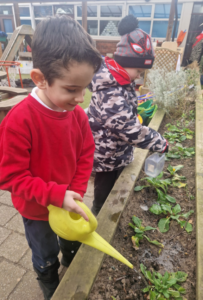
- Teachers demonstrate how to use scientific equipment, and the various Working Scientifically skills in order to embed scientific understanding. Teachers find opportunities to develop children’s understanding of their surroundings by accessing outdoor learning and workshops with experts.
- Children are offered a wide range of extra-curricular activities, including visits, trips, and visitors to complement and broaden the curriculum. These are purposeful and link with the knowledge being taught in class.
- At the end of each unit, pre-assessments are completed again to evidence learning and allow children to reflect upon the knowledge and understanding they have acquired.
- To inspire the next generation of scientists, local and wider career opportunities are celebrated and explored throughout school.
Science impact:
As a Y6 scientist transitioning to secondary school, we aspire that all learners will have experienced a science curriculum that provides them with the skills and knowledge required for understanding the world. Children will have the know that science has changed our lives and that it is vital to the world’s future prosperity. Children will be knowledgeable about different scientists from various backgrounds, and we hope that all children will feel that they are scientists and capable of achieving.
